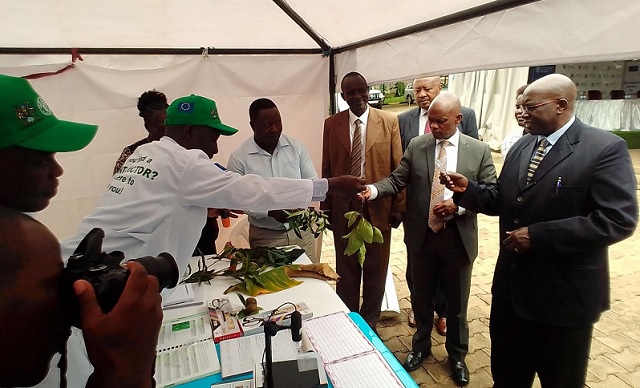
Nakapiripirit, Uganda | THE INDEPENDENT | Unregulated liberalization is posing a threat to agriculture, particularly crop production, in the Karamoja region of Uganda, potentially hindering the government’s efforts to achieve food self-sufficiency in the area.
Joh Longino, the Nakapiripirit District Local Council 5 Chairperson, expressed concerns about the distribution of substandard agricultural inputs by profit-driven dealers, which adversely affects farmers who have no recourse without government intervention.
Traditionally, Karamoja relied on a nomadic lifestyle and cattle for sustenance, but in recent years, the government has been promoting crop farming to address chronic food shortages and improve household incomes. Despite challenges such as unpredictable rainfall patterns and insecurity, these efforts, supported by donors, have shown promising results.
Representing the nine districts of the region, Longino acknowledged that Karamoja has adequate rainfall to achieve food self-sufficiency but highlighted the need to address the variability in rainfall patterns. To support agricultural development, the Food and Agricultural Organisation (FAO) Uganda office handed over plant clinics, staffed by trained agricultural extension workers, to the Ministry of Agriculture, Animal Industry, and Fisheries (MAIIF).
The European Union and FAO funded the training of these “farm doctors” and the procurement of necessary equipment. Each district in Karamoja will receive two clinics to enable early detection and timely management of crop pests and diseases.
The clinics are equipped with resources such as tents, computerized field microscopes, magnifying glasses, record books, and waste-handling buckets. The clinics’ managers are responsible for maintaining monthly or immediate records, which are then analyzed by the ministry to inform decision-making in addressing identified issues.
Dr. Owachi from FAO emphasized the global impact of pests and diseases on farmers’ yield and stressed the importance of addressing this problem at national and subnational levels to prevent disasters. He assured FAO’s commitment to supporting extension workers and the plant clinics.
Ms. Nadia Cannata, the EU team leader for sustainable development, emphasized the proactive approach of the plant clinics in preventing crop loss and famine. She pledged continued cooperation with MAIIF. Minister Gyagenda highlighted that the project aligns with the National Development Plan III, focusing on job and wealth creation.
He emphasized the value chain development and the importance of combatting crop pests and diseases. Steven Byantware, the director of crop resources at MAIIF, suggested expanding the presence of plant clinics to every parish, aligning with the government’s Parish Development Model (PDM). He likened the clinics to healthcare facilities for silent patients who rely on farmers to interpret their signs of illness and communicate their needs.
******
URN
 The Independent Uganda: You get the Truth we Pay the Price
The Independent Uganda: You get the Truth we Pay the Price



